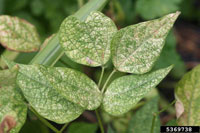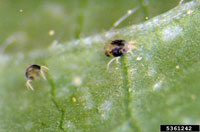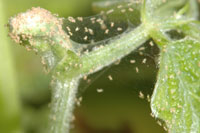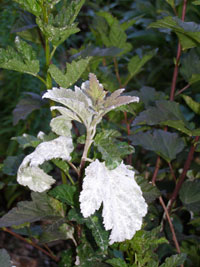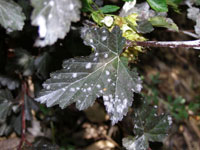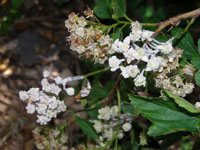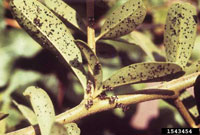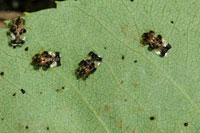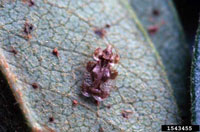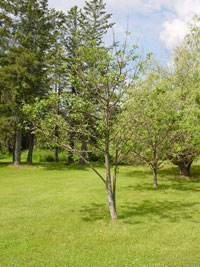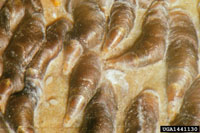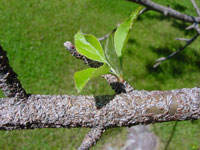Extension > Garden > Diagnose a problem > What's wrong with my plant? > Deciduous > Cotoneaster > Leaves discolored white, yellow or pale green
Cotoneaster > Leaves > Leaves discolored white, yellow or pale green
1 of 4
Two-spotted spider mite
Tetranychus urticae
- White to yellow stippling on foliage
- Heavy infestations will cause leaves to turn white, yellow and ultimately grayish bronze
- Premature leaf drop may occur
- Mites usually appear in late June to August; they are more prevalent in hot, dry weather
- Adult spider mites are small (approximately 1/50 inch long) and are hard to see; they are yellow to dark red with dark spots (need magnification to see)
- Shake leaves over white paper or plate to detect mites- adults are dark and move slowly
- More information on spider mites
2 of 4
Powdery Mildew
Podosphaera clandestina
- Patches of white, powdery or felt-like fungal patches on leaf surfaces
- Leaves and shoots may be puckered or distorted
- New leaves and shoots may be smaller than normal
- Powdery white fungal growth may be present on ripened berries
- Symptoms may develop over a single season, or over several years
- More information on powdery mildew
3 of 4
Hawthorn Lacebug
Corythuca cydoniae
- Feed on underside of leaves causes yellowish pin-prick stippling on upper surface
- Small drops of varnish-like excrement is found on underside of leaves
- Heavy feeding may cause damaged areas to coalesce forming blotches
- Active throughout the growing season, although damage is most noticeable during late summer
- Adults are .125 to .25 inches long, have light colored bodies with black bands with ornately sculptured wings that are flat and lacey from above.
- More information on Hawthorn Lacebug
4 of 4
Oystershell scale
Lepidosaphes ulmi
- Light to moderate infestations show little or no symptoms
- Severe infestations can cause chlorotic, stunted foliage
- Dieback and cracked bark can result from heavy infestations
- Light to dark brown, elongated, 1/10 to 1/8 inch long oyster-shell shaped scales found on bark
- More information on Oystershell Scale



